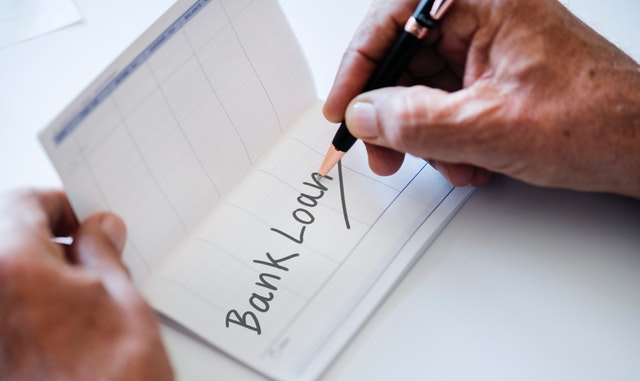 It’s more common these days to have non-traditional income that doesn’t fall into the W-2 category. Many people work in what is referred to as the “gig economy,” where income might come from a variety of freelance sources.
It’s more common these days to have non-traditional income that doesn’t fall into the W-2 category. Many people work in what is referred to as the “gig economy,” where income might come from a variety of freelance sources.
Other times, people don’t have W-2 income because they are retired or have an independent source of wealth that generates interest income. Still other times, an individual may own their own business and take draws instead of a paycheck. In all these cases, it might seem impossible to qualify for a mortgage, since there’s no W-2 income.
Lenders Are Understanding
Thankfully, many lenders understand when a prospective lender doesn’t have W-2 income. Since it’s becoming more common, lenders have come up with alternative ways to qualify borrowers who want to buy a home. While more paperwork is usually involved, it is still possible to get a mortgage, assuming you work with certain lenders. Your real estate agent can help you in this regard; sourcing lenders that work with non-traditional borrowers.
Rely On Your Tax Returns
Even without W-2 income, you can prove income by relying on your tax returns. If you can show at least two years of qualifying income levels on your tax returns, your lender will have an easier time of finding underwriters for your loan.
Maintain Your Bank Deposits
Some states offer a Bank Statement Loan Program that looks – not at your W-2s – but at your bank deposits for the last 12 to 24 months. These programs are ideal for people who own their own business and take draws rather than paychecks.
Try For An Assumable Mortgage
Sometimes you may be able to find a property that has an assumable loan. In these instances, all you need to do to qualify for the mortgage is to have sufficient money for a down payment, have a decent credit history and be able to prove your income one way or another. Assumable loans can be harder to find, but your real estate agent can help you with that part of your home buying process.
Bear in mind that each of these options require a strong credit history in order to qualify. Credit scores and histories are always the cornerstones of acquiring a mortgage, whatever your income source may be.
Two important partnerships in your quest for a new home are with a trusted real estate agent and a home mortgage provider. Be sure to rely on these professionals to answer all of your real estate and financing questions.
 What happens when you suddenly get a notice to pay your mortgage to a company you may have never heard of? How do you determine if this is a legitimate request or a scam?
What happens when you suddenly get a notice to pay your mortgage to a company you may have never heard of? How do you determine if this is a legitimate request or a scam? Are you the type of real estate investor that has an interest in a treasure hunt? A real estate investment strategy based on hard money is, at its core, a treasure hunt. There must be an underlying value, the “treasure,” for a hard money opportunity to exist.
Are you the type of real estate investor that has an interest in a treasure hunt? A real estate investment strategy based on hard money is, at its core, a treasure hunt. There must be an underlying value, the “treasure,” for a hard money opportunity to exist. You’ve finally found the perfect home for your family. Now the only thing standing between you and domestic bliss is the loan process. Use these techniques to shorten the amount of time between placing your bid and getting the final approval on your new home mortgage.
You’ve finally found the perfect home for your family. Now the only thing standing between you and domestic bliss is the loan process. Use these techniques to shorten the amount of time between placing your bid and getting the final approval on your new home mortgage. For most people, the mortgage payment is the biggest monthly expense. Whether you’re facing retirement or still working, it would be nice to be free of this debt. Although you probably can’t pay it off in one lump sum, it is possible to pay off your mortgage sooner than expected.
For most people, the mortgage payment is the biggest monthly expense. Whether you’re facing retirement or still working, it would be nice to be free of this debt. Although you probably can’t pay it off in one lump sum, it is possible to pay off your mortgage sooner than expected. Whether you’re finally prepared to get into the real estate market or you want to know how you can make a deal quick, there are a few necessary documents you’ll need to prove your reliability to a mortgage lender.
Whether you’re finally prepared to get into the real estate market or you want to know how you can make a deal quick, there are a few necessary documents you’ll need to prove your reliability to a mortgage lender. Securing the best conventional mortgage rate possible can pose a challenge for even veteran property buyers.
Securing the best conventional mortgage rate possible can pose a challenge for even veteran property buyers. Once you and the seller have negotiated an offer and you’ve been pre-approved for a mortgage, you might think that you are in the clear as far as your closing goes. However, that is not always the case. Many surprising things can put a halt to closing. Some may ultimately stop the closing altogether while others could simply cause a delay.
Once you and the seller have negotiated an offer and you’ve been pre-approved for a mortgage, you might think that you are in the clear as far as your closing goes. However, that is not always the case. Many surprising things can put a halt to closing. Some may ultimately stop the closing altogether while others could simply cause a delay. Going solar can make life sunnier for some homeowners. In addition to reducing energy dependence by “borrowing” energy directly from the sun, purchasers may also enjoy a 30 percent federal Solar Investment Tax Credit and other incentives, according to SEIA.
Going solar can make life sunnier for some homeowners. In addition to reducing energy dependence by “borrowing” energy directly from the sun, purchasers may also enjoy a 30 percent federal Solar Investment Tax Credit and other incentives, according to SEIA.